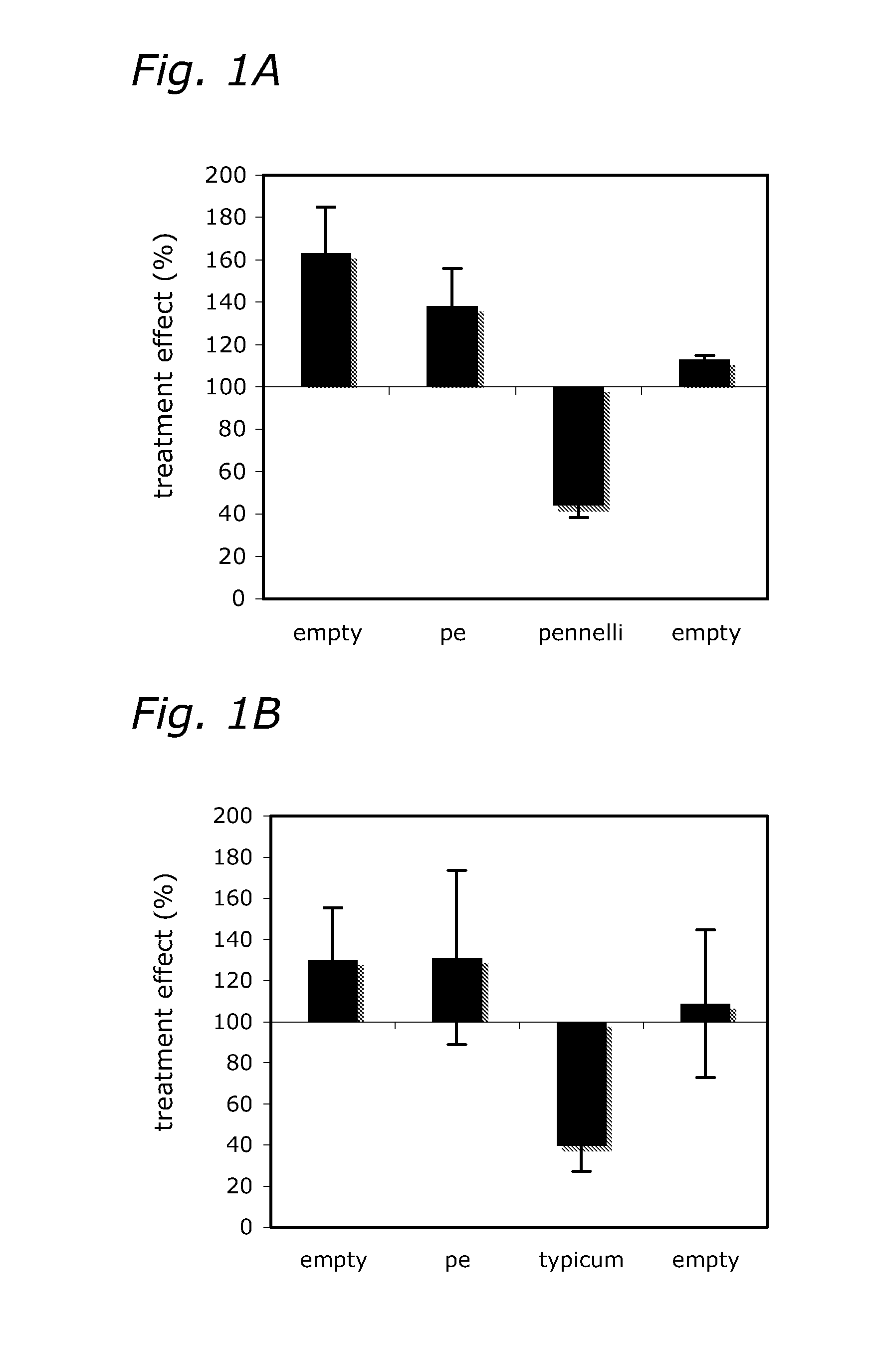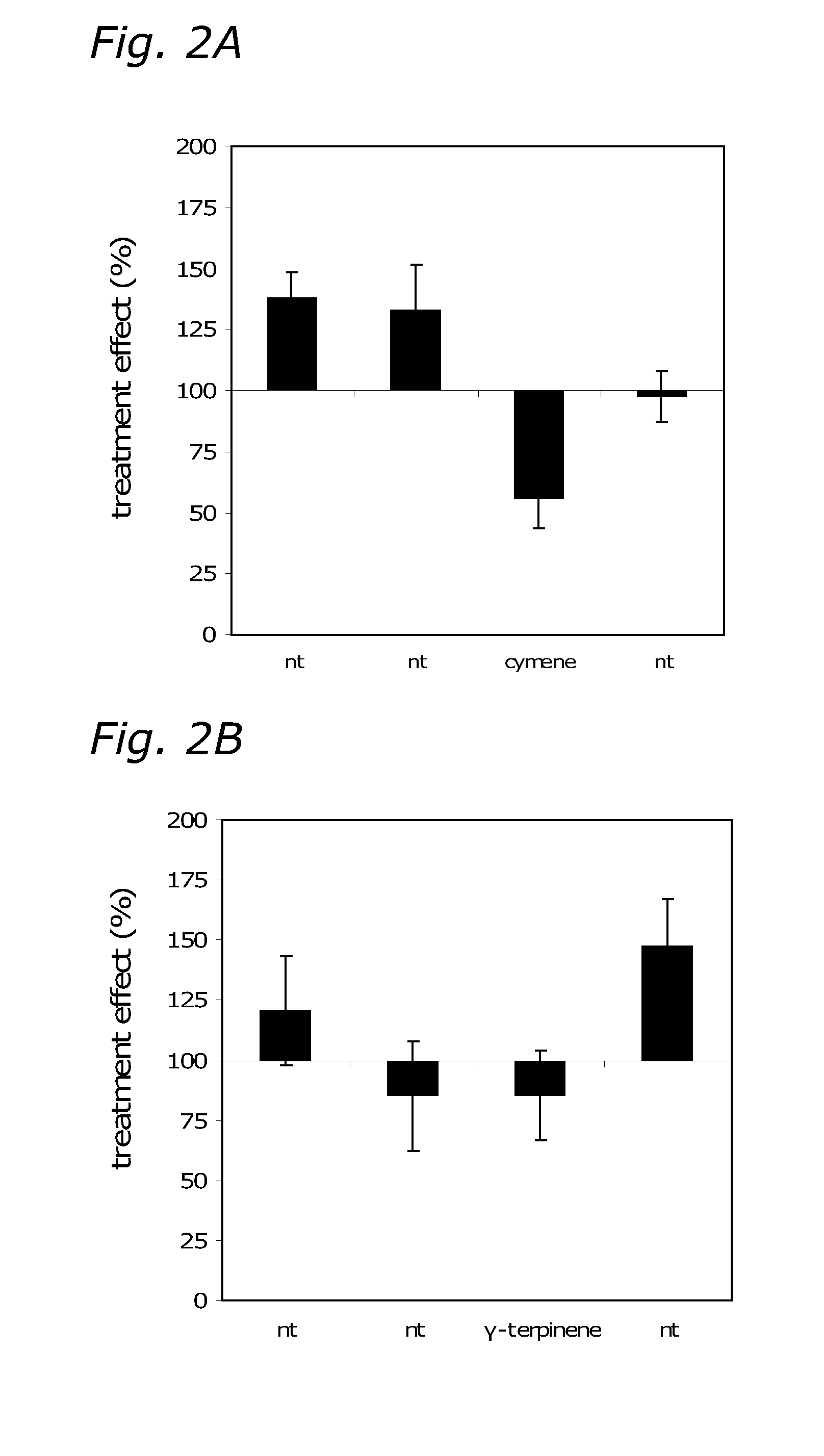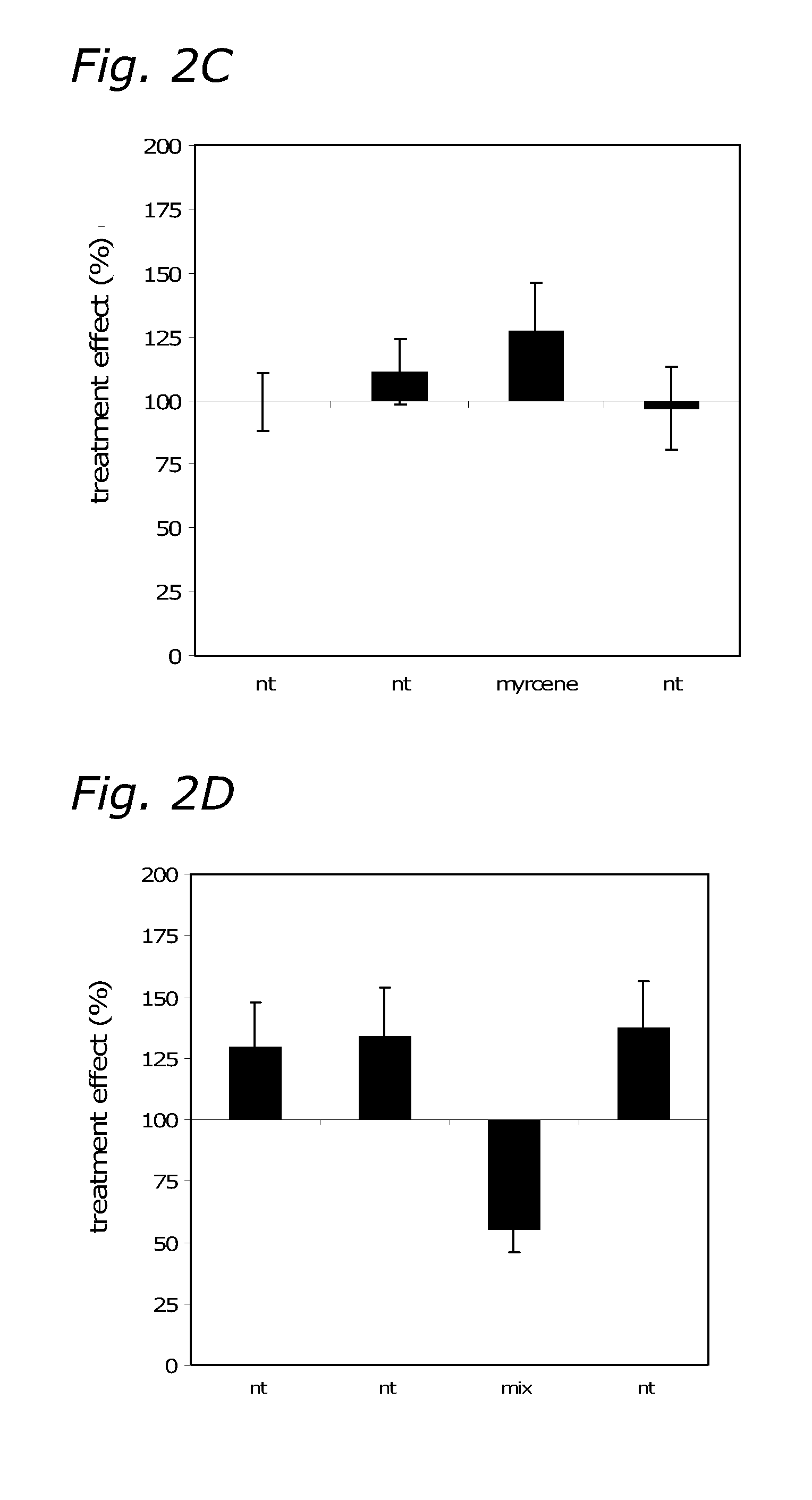Plant volatiles
a volatile plant technology, applied in the field of plant volatiles, can solve the problems of economic loss, severe environmental impact of practice, and difficult control of tabaci /i>with insecticides, and achieve the effect of increasing the number of pest organisms
- Summary
- Abstract
- Description
- Claims
- Application Information
AI Technical Summary
Benefits of technology
Problems solved by technology
Method used
Image
Examples
example 1
Tomato Head-Space Volatiles and Whitefly Preferences
1.1 Material and Methods
[0130]A population of Bemisia tabaci was collected at a common greenhouse in Santa Maria del Aguila (Almeria, Spain) in October 2005. By PCR analyses this population was identified to belong to the Q-biotype. The population was reared in a climate chamber (Temperature 28° C., 16 h light) on a mixture of tomato and cucumber plants. Preference of the insects for particular plants (treated or untreated / control-treated) was tested in free choice bioassays.
[0131]It is known that whiteflies make use of both visual cues as well as smell to find their host. It was shown by the inventors that B. tabaci can differentiate between different tomatoes using volatile cues by omitting visual cues in a ‘blind’ assay where tomatoes were placed under a mesh cover.
[0132]In order to test the effect of scent of the tomato plant on host-preference of the whitefly the sampled headspace, containing the full blend of semiochemicals, ...
example 2
Determination of Headspace Components Involved in B. tabaci Repellence
2.1 Material and Methods.
[0138]A collection of 16 wild type and 5 cultivated tomatoes was put together (Table 4). For each of these cultivars the level of whitefly repellence was established in randomised hexagon setups in free choice bioassays in an open greenhouse. In each experiment 300 new naive, adult whiteflies (Almeria population) were released in the middle of 6, randomly chosen, plants Twenty minutes after release the number of flies on each plant was counted. Each setup was repeated 3 times after which the two least repellent plants were replaced by two new test plants. Stepwise sequential testing finally resulted in a ranking into 7 classes with a clear differential repellence (Table 4).
[0139]The headspace of 16 wild tomatoes and 5 cultivated tomatoes (Table 4) was collected. Undisturbed 3-weeks old tomato plants were transferred to 40-L desiccators. The headspace was sampled during 24 h including a 16 ...
example 3
Bioassays with Selected Components and Mixtures of these Components
3.1 Material and Methods
β-phellandrene, zingiberene and curcumene were not commercially available and had to be synthesised. Zingiberene and R-curcumene were isolated from ginger oil and 7-epi zingiberene and S-curcumene from S. habrochaites (PI27826) leaf material after Millar (1998, J. Nat. Prod 61, 1025).
[0144]Host preference with and without manipulated headspace by B. tabaci was explored in free choice assays. In each setup four cultivated tomatoes (cv. Moneymaker) were tested as described earlier. For the bioassays with volatiles rubber septa (Sigma Aldrich Z167258) were extracted with CH2Cl2 for 24 hours and dried to the air for 3 days. The desired blend of volatiles was added to the rubber septa in 100 μl hexane. Bioassays with pure components, or mixtures of pure components were carried out as described above.
3.2 Results
[0145]To positively confirm the correlation between the 7 candidate components and B. tab...
PUM
| Property | Measurement | Unit |
|---|---|---|
| concentrations | aaaaa | aaaaa |
| weight | aaaaa | aaaaa |
| weight | aaaaa | aaaaa |
Abstract
Description
Claims
Application Information
 Login to View More
Login to View More - R&D
- Intellectual Property
- Life Sciences
- Materials
- Tech Scout
- Unparalleled Data Quality
- Higher Quality Content
- 60% Fewer Hallucinations
Browse by: Latest US Patents, China's latest patents, Technical Efficacy Thesaurus, Application Domain, Technology Topic, Popular Technical Reports.
© 2025 PatSnap. All rights reserved.Legal|Privacy policy|Modern Slavery Act Transparency Statement|Sitemap|About US| Contact US: help@patsnap.com



